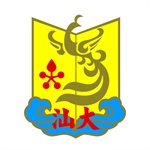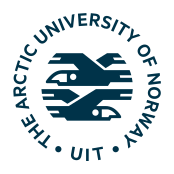📖Program Curriculum
Project details
This PhD project is a part of the Vice-Chancellor's Scholarship looking to support the climate change and net zero agenda. This opportunity forms a suite of five projects focusing on ecosystem health in a changing climate - the application of advanced multi-sensing systems.
The impact that climate change is having on the world’s ecosystems affects every one of us. Our capacity to grow food, to maintain clean and safe water supplies, and our ability to do this in a way that is sustainable, is dependent upon our understanding of how soil and water are affected by our changing weather.
The EcoSENSE research cluster (involving 5 PhD studentships) will develop new sensors for the accurate, sensitive and real-time monitoring of the health of water and soil systems. We will achieve this through an ambitious and exciting series of interconnected projects combining expertise in Materials Science, Chemistry, Geography and Computer Science, guided by input from key Industrial partners including MAST group Ltd and Severn Trent.
We have developed a patented technology that enables the encapsulation of luminescent probes for the detection of anions into crosslinked hydrogels. The current technology focuses on single probes and analytes, however, multiple analytes and complex mixtures of components are key features of environmental samples, which provide challenges for detection and quantification that often require sophisticated and costly instrumentation.
To address this challenge of multiple analyte detection, there is a need for array-based sensors that enable rapid, sensitive and low-cost monitoring of multiple analytes in environmental samples (e.g. water, soil). An array approach functions in a similar manner to a human nose or tongue, where relatively weak binding of an analyte to a range of probes leads to a fingerprint response pattern unique to that analyte.
In this PhD project, we will work closely with Industrial partners Severn Trent and MAST group Ltd to translate our platform ion sensing technology into devices with industrial and environmental relevance. There is a particular focus on adapting the morphology of the materials to the currently used devices, development of the sensing materials to allow encapsulation of multiple probes, enhanced data processing to allow multiple analytes to be measured simultaneously and development of the user interface. The compatibility of a range of probes and analytes will be studied, and the effect of device structure and composition on the encapsulation of the probes and diffusion of the ions will be investigated. The specific materials will be guided by collaboration with other researchers within the EcoSENSE cluster. The ultimate goal of this project is the development of a framework to support multiple sensor analyses displayed via an app.
The EcoSENSE research cluster will develop a new class of advanced sensing materials for the continuous analysis of the health of aquatic and terrestrial ecosystems. This is key for understanding how ecosystems function allowing us to respond to the current drivers of environmental change.
During this PhD project, you will acquire skills in device design and interface development, commercialisation, as well as polymer synthesis and nanofabrication methods for sensing applications. Also, you will use state-of-the-art facilities for the testing and characterisation of the devices developed. Within the Polymer group, you will work with a multidisciplinary team with extensive experience in polymer science and materials testing. Within Computer Science you will interact as a member of the Vision, AI, Autonomous and Human Centred Systems research theme.
Show less








